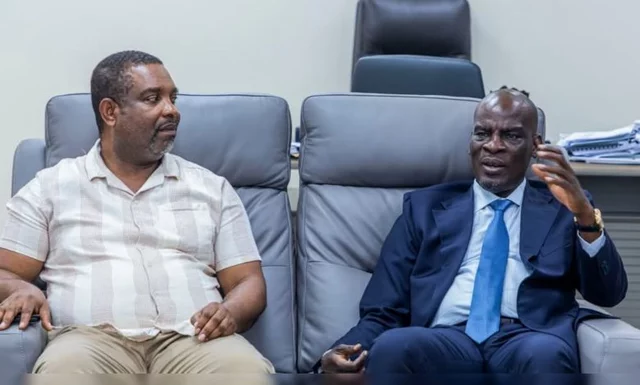The Ministry of Education has begun rolling out Artificial Intelligence (AI) applications designed for specific subjects in Senior High Schools (SHS) across Ghana. This initiative aims to improve the implementation of the new curriculum while preserving the country’s ethical and cultural values.
These innovative apps are expected to benefit over 68,000 teachers and more than 1.4 million students nationwide. The project was jointly developed by the Ghana Education Service (GES), the National Council for Curriculum and Assessment (NaCCA), the National Teaching Council (NTC), the National School Inspectorate Authority (NaSIA), and the Centre for National Distance Learning and Open Schooling (CENDLOS). It also received technological support from Playlab AI and funding from Transforming Teaching, Education & Learning (T-TEL) and the Mastercard Foundation.
According to the Ministry, the Subject-Specific Apps are built on Ghana’s curriculum materials, including teacher manuals and learner resources. They are designed to make lesson planning and assessment more efficient, aligning teaching and learning activities with national standards while promoting values such as gender equality, social inclusion, and respect for cultural norms.
To ensure effectiveness, the apps are undergoing a four-phase testing process:
Technical Accuracy Review – Verifying alignment with curriculum content.
Educational Quality Review – Ensuring sound pedagogy.
User Experience Review – Testing in pilot schools.
Regional Testing – Assessing readiness for nationwide rollout.
21The apps are being introduced during weekly
Professional Learning Community (PLC)
sessions across all 712 SHSs, providing teachers with the opportunity to test the tools, collaborate, and share feedback. Importantly, the Ministry stressed that the AI will serve as a support system for teachers rather than a replacement for their expertise.
Training for over 7,800 school-based facilitators is expected to begin ahead of the full rollout in October 2025.
Speaking on the initiative, Munira Karim, Head of the Public Relations Unit of the Ministry of Education, emphasized that the project is geared toward continuous improvement and building trust among educators and stakeholders.
“The Ministry of Education is dedicated to making sure that the adoption of AI in education is driven locally, guided by strong ethical principles, and aimed at helping teachers enhance learning outcomes for every student,” she stated.
With this initiative, Ghana stands among the first African nations to formally incorporate subject-specific AI tools into its national secondary education system.

